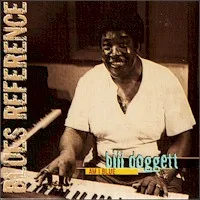Time: 68:02
Size: 155.7 MB
Styles: Bop, Piano jazz
Year: 1998
Art: Front
[7:08] 1. Some Other Blues
[7:42] 2. Softly, As In A Morning Sunrise
[5:36] 3. Mirical
[6:59] 4. Inner Trust
[8:14] 5. You Don't What Love Is
[8:47] 6. Two Lonely People
[3:18] 7. Once Upon A Summertime
[4:16] 8. We See
[8:14] 9. Old Folks
[7:44] 10. Winnie's Garden
David Kikoski (P); Ed Howard (B); Leon Parker (D). Recorded December 19, 1997 in New York City, NY, USA by Max Bolleman.
One of David Kikoski's strongest offerings, Inner Trust is a departure in that it focuses primarily on non-original material. Three of the ten tracks are by the pianist, but the rest are standards and jazz classics. Joined by Leon Parker on drums and fellow Roy Haynes sideman Ed Howard on bass, Kikoski reaches consistently grand heights of harmonic invention on burning numbers like "Softly, as in a Morning Sunrise" and John Coltrane's "Some Other Blues." "Winnie's Garden," a Kikoski-penned workout over the chord changes to "Sweet Georgia Brown," practically overflows with energy. And Thelonius Monk's "We See" swings with almost comic cleverness. On the softer side are "You Don't Know What Love Is," "Old Folks," and the unaccompanied "Once Upon a Summertime." "Two Lonely People," a little-known song composed by master pianist Bill Evans and once sung by Tony Bennett, is also noteworthy. Of the two remaining originals, "Mirical" is mannered, but the title track is one of Kikoski's finest achievements -- a simple, stately melody that serves as a launching pad for bold and impassioned improvisation. (A version for quintet can be heard on Roy Haynes's Praise.) ~David R. Adler
One of David Kikoski's strongest offerings, Inner Trust is a departure in that it focuses primarily on non-original material. Three of the ten tracks are by the pianist, but the rest are standards and jazz classics. Joined by Leon Parker on drums and fellow Roy Haynes sideman Ed Howard on bass, Kikoski reaches consistently grand heights of harmonic invention on burning numbers like "Softly, as in a Morning Sunrise" and John Coltrane's "Some Other Blues." "Winnie's Garden," a Kikoski-penned workout over the chord changes to "Sweet Georgia Brown," practically overflows with energy. And Thelonius Monk's "We See" swings with almost comic cleverness. On the softer side are "You Don't Know What Love Is," "Old Folks," and the unaccompanied "Once Upon a Summertime." "Two Lonely People," a little-known song composed by master pianist Bill Evans and once sung by Tony Bennett, is also noteworthy. Of the two remaining originals, "Mirical" is mannered, but the title track is one of Kikoski's finest achievements -- a simple, stately melody that serves as a launching pad for bold and impassioned improvisation. (A version for quintet can be heard on Roy Haynes's Praise.) ~David R. Adler
Inner Trust mc
Inner Trust zippy




















